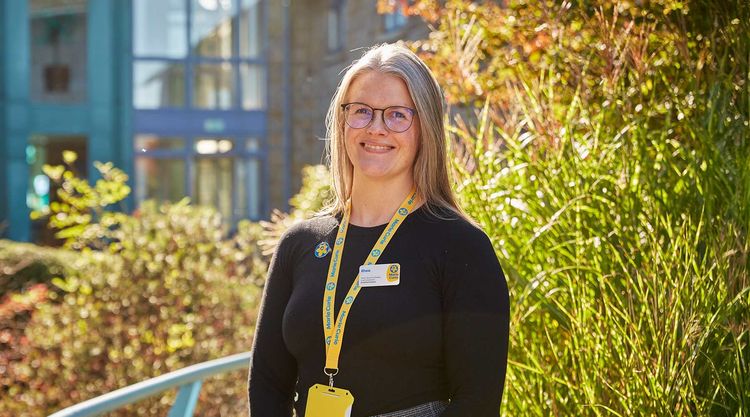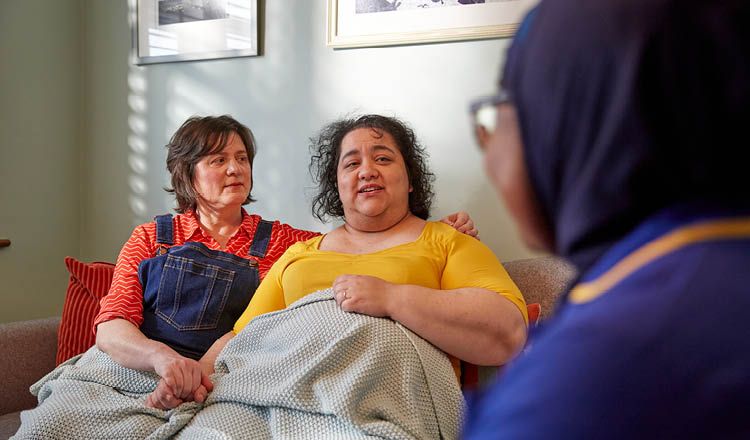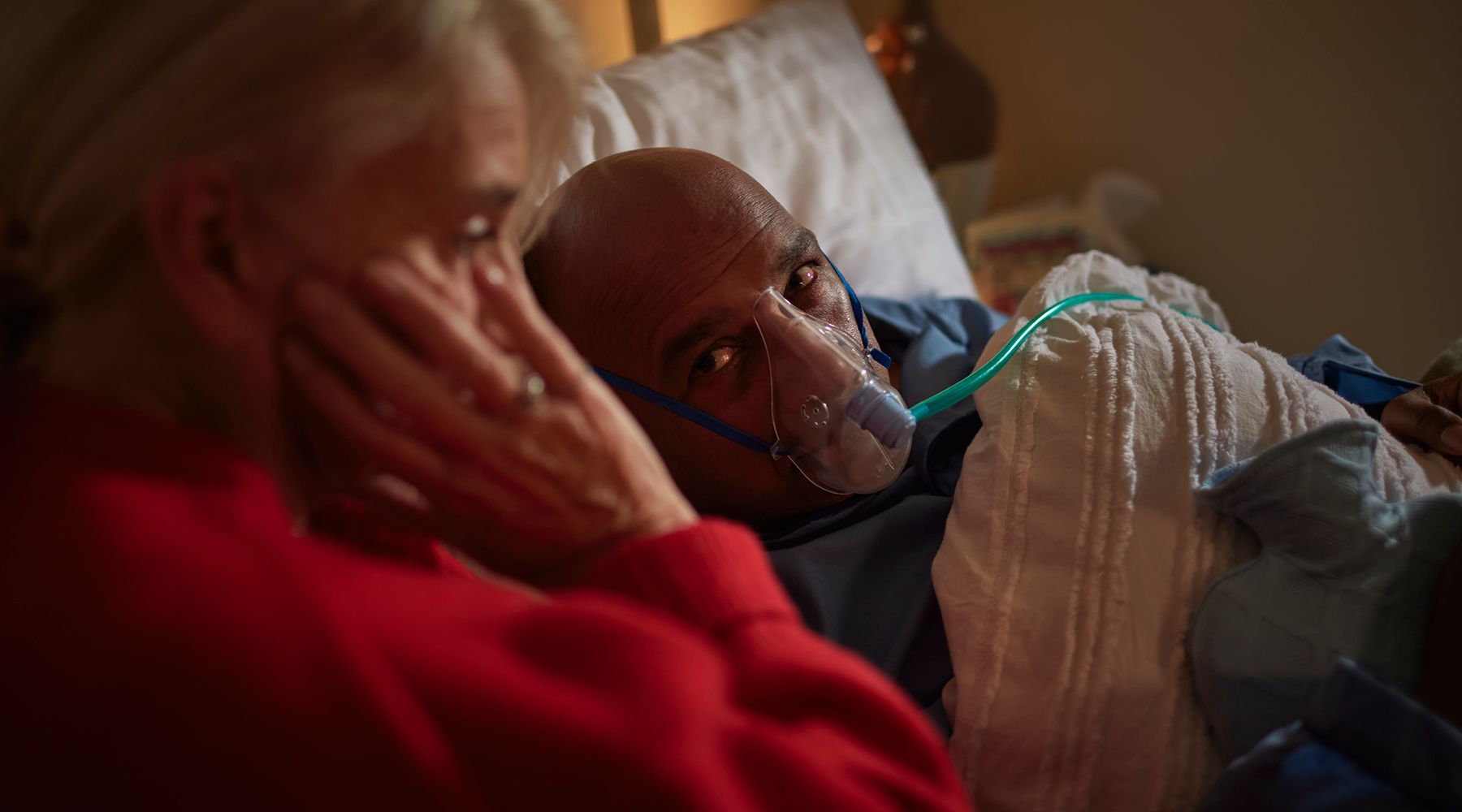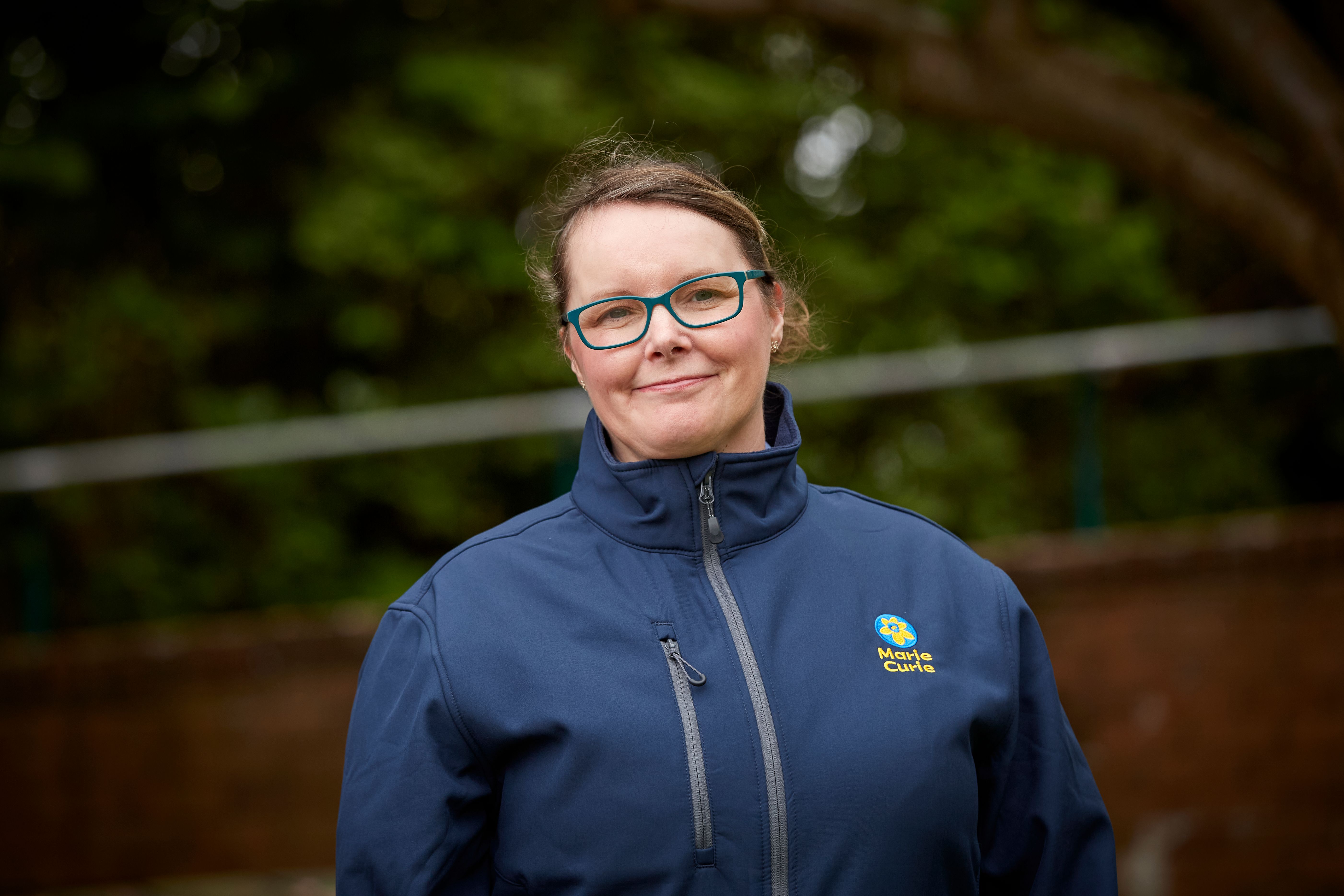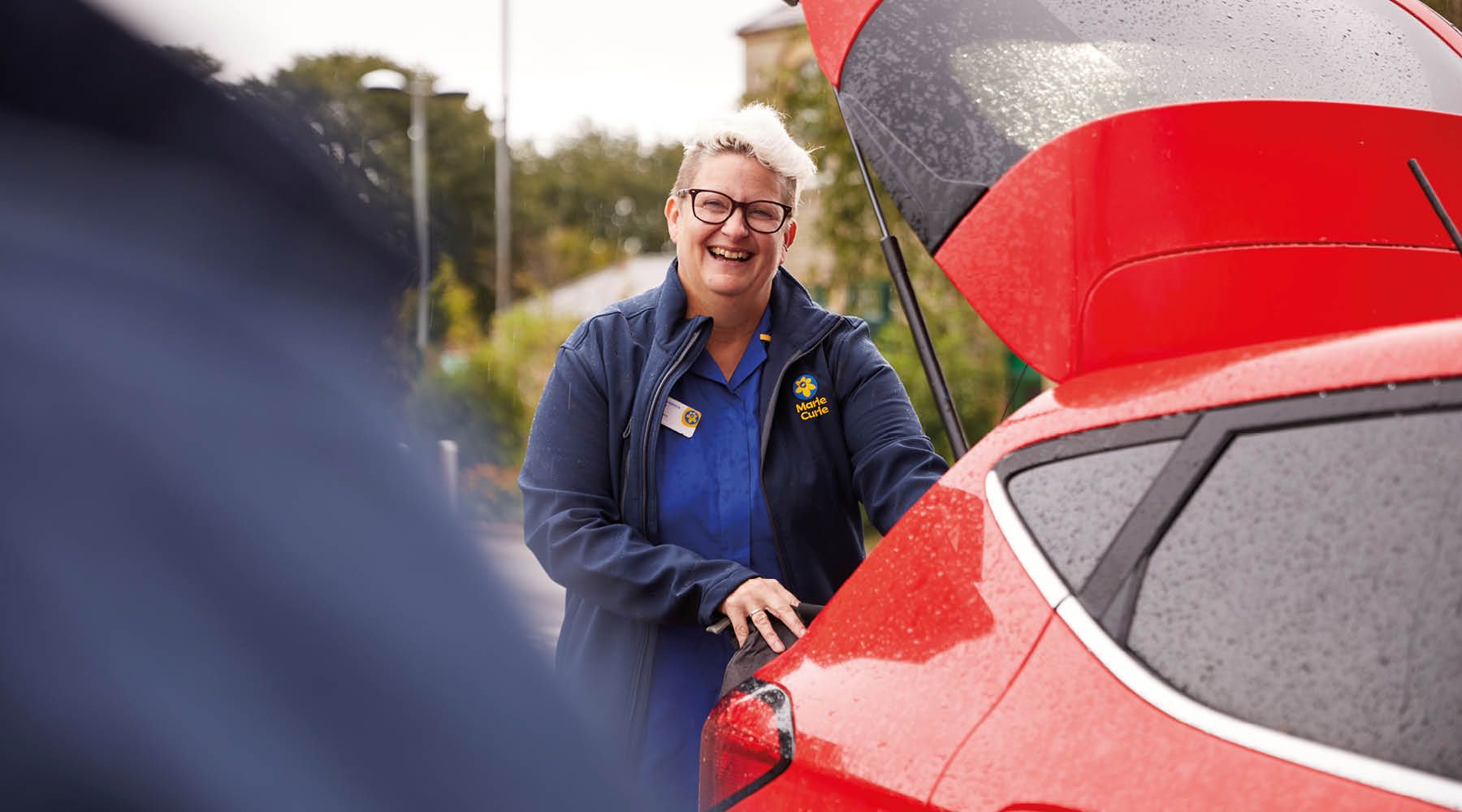Rhea Sutcliffe is a Motor Neurone Disease (MND) Care Co-ordinator at Marie Curie Hospice, Bradford. She works within a specialised team that runs an in-hospice clinic and provides information and support for those who need it.
Ahead of MND Awareness Day on 21 June 2025, Rhea talks about how she became a care co-ordinator, the challenges and joyful aspects of her role, and the specific needs of people living with MND.
When the MND Care Co-ordinator role came up at the hospice, it felt like a new challenge for me. I could see this small group of people with really specific and complex, ever-evolving needs, and how important it is for them to have joined up care.
I’d never stepped foot in a hospice before
I qualified in 2005 as a physiotherapist, so I have twenty years in the trade! After doing my usual rotations in acute hospitals I went into more community-based services. Before doing a placement at the Marie Curie Hospice, Bradford, I had no knowledge of palliative care, and I’d never stepped foot in a hospice before. I really enjoyed my placement; it opened my eyes to the patient-centred nature of hospices.
I initially worked for a local hospice before joining Marie Curie in 2019 in a physiotherapist role. Before becoming the MND Care Co-ordinator, I attended an MND clinic hosted in Bradford, so I’d gained an understanding of the needs of people with MND and their families, what the hospice was offering them, and the professionals that supported them in the multidisciplinary team.
When I started my current role it felt like someone had handed me a jigsaw and all the pieces were on the floor. I had to spend time working out how all the pieces fit together, which took a lot of brain power. Imagine living with MND, having no knowledge of health and social care systems and trying to navigate that on your own – it’s almost like learning another language.
We formulate a plan to support people
When somebody in Bradford has a diagnosis of MND, I invite them to the in-person clinic held at the hospice every month. Many different health and social care professionals form the core multidisciplinary team. It includes the neurologist, a palliative medicine consultant, occupational therapists and physiotherapists, speech and language therapists, a dietitian and, more recently, an MND psychologist.
Clinic provides a chance for the person living with MND and their family to discuss anything that's important to them. We look at how things might be progressing with their disease, what symptoms they might be experiencing and anything else that's impacting their life. The clinic also enables us to monitor things like respiratory function, and accurate body weight – key indicators to how MND is progressing. Clinic offers an opportunity for people living with MND and their families to plan ahead.
Travelling, mobility and fatigue all make getting to appointments difficult for people with MND, so having one clinic that serves many purposes means they can make one trip and reduce the number of appointments. Time is important to people and it's vital that people to have a life outside of medical appointments.
I’m also a sounding board
No two days are the same in my role. I co-ordinate the clinic at the hospice and I’m also a sounding board, a source of information and emotional support for patients and their families. I’m their single point of access to the multidisciplinary team; rather than having to know which professional to go to, they can come to me. MND often affects a person’s ability to speak, so I can make their wishes heard if needed.
I also deliver education and training sessions to staff in other settings like care homes and home care agencies who’ve never supported a patient with MND before. I liaise regularly with the MND Association to make sure we're working in line with their work and service development.
It's hard if I feel like I’m falling short
It can be difficult to witness people's deterioration, the burden of MND symptoms, and the impact that has on the person and the people around them. It can be challenging to witness the level of psychological distress some people face.
It’s frustrating if I can't get the things that people need due to barriers in services or if things don’t go as smoothly as I’d like – that’s really hard for me to take. I just want to do the best for people, so it's hard if I feel like I’m falling short of that, even if I’m doing the best with what I've got.
Families will just be getting used to one change caused by MND and the goal post will move again, and it varies from person to person how quickly the disease progresses and how things change.
I can see the importance of the work we do
It's vitally important for people to have control over their choices. With MND, people lose control over a lot of things; their ability to move their limbs, their swallowing, their breathing, but they should still be given choice about how they want to live with this disease.
I’m supporting one family at the moment and I’m struck by how well they're managing to make the most of life with MND. They're very active in attending support groups, both here at the hospice and with the MND Association. They do a great job of getting out on trips and doing things that are important to them. They have days blocked out where they're doing the fun stuff, and that's so joyful to see.
Some people with MND can live quite a long time compared to some other diseases, and the amount of support they need is huge. I can see the importance of the work we do in the hospice and the difference it can make to people.
If you or someone close to you is living with Motor Neurone Disease, you can get free practical and emotional support from our Support Line and Marie Curie Companion service.
You can help provide more expert end of life care to people living with any terminal illness, including MND. Donate today.
All rights reserved. Contact stories@mariecurie.org.uk for more information.
